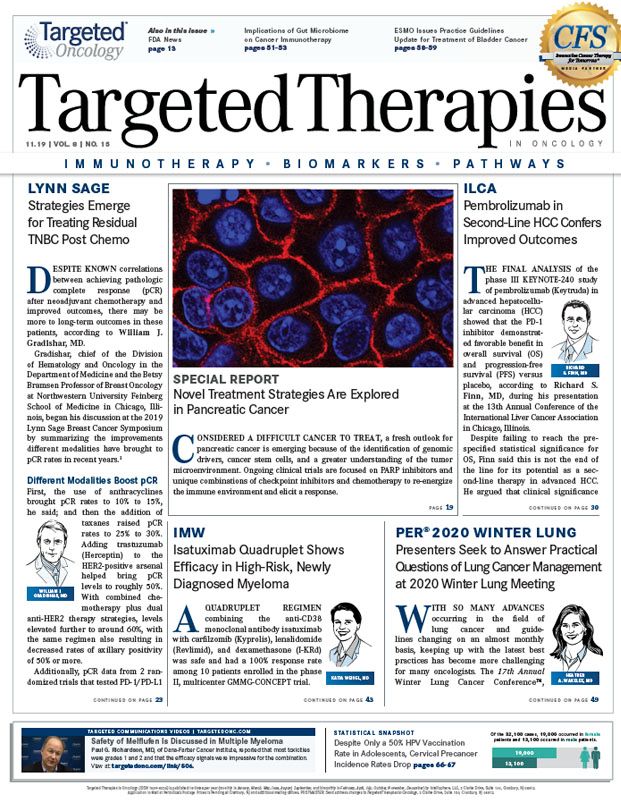Investigators Explore Neoadjuvant Immunotherapy in Hepatocellular Carcinoma
In solid tumor oncology, an evolving treatment paradigm is getting more and more attention—and no, I’m not referring to immunotherapy. In localized solid tumors, surgery is often a standard of care, with intent being toward cure.
Arjun V. Balar, MD
In solid tumor oncology, an evolving treatment paradigm is getting more and more attentionand no, I’m not referring to immunotherapy. In localized solid tumors, surgery is often a standard of care, with intent being toward cure. However, for patients at high-risk of systemic relapse (eg, positive lymph nodes in someone who undergoes a partial colectomy with lymph node dissection for colon cancer), adjuvant therapy is often recommended to reduce the risk and improve rate of cure. The paradigm is now evolving toward neoadjuvant treatment (ie, before surgery). This has many advantages (and some disadvantages) to adjuvant treatment, and recent advances in systemic immunotherapy agents spurred renewed interest in this approach.
Historically, one of the biggest advantages to neoadjuvant therapy involved in vivo assessment of treatment effectiveness, which can then inform prognosis and subsequent therapy, if indicated. For example, in a patient with muscle-invasive bladder cancer who receives neoadjuvant chemotherapy prior to radical cystectomy, a complete pathologic response to neoadjuvant chemotherapy is associated with an 85% to 90% likelihood of cure. However, if residual muscle-invasive disease is present despite neoadjuvant chemotherapy, a patient is at higher risk of systemic relapse and should be counseled about clinical trials of experimental adjuvant treatment.
This era of immunotherapy brings even more reason to pursue neoadjuvant treatment. The immune microenvironment of a primary tumor contains immune cell populations that attempt to control the tumor; thus, it is optimal to administer a systemic immunotherapy agent, designed to proliferate and expand the tumor resident immune populations, before surgery rather than after, when those precious immune cells were resected along with the tumor. That’s the immunobiology equivalent of throwing the baby out with the bathwater.

Survivorship Care Promotes Evidence-Based Approaches for Quality of Life and Beyond
March 21st 2025Frank J. Penedo, PhD, explains the challenges of survivorship care for patients with cancer and how he implements programs to support patients’ emotional, physical, and practical needs.
Read More